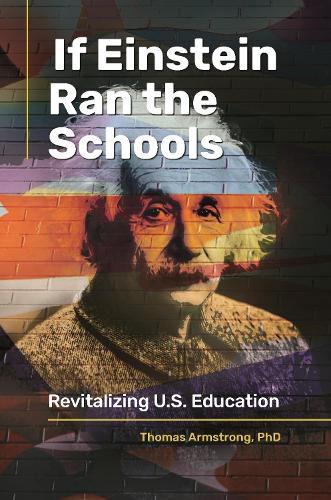Readings Newsletter
Become a Readings Member to make your shopping experience even easier.
Sign in or sign up for free!
You’re not far away from qualifying for FREE standard shipping within Australia
You’ve qualified for FREE standard shipping within Australia
The cart is loading…






Many world-class thinkers and creators have been concerned about the state of education in the United States. Discover their thoughts on how children really learn and what teachers must do to optimally tap children’s latent abilities.
During the last three decades, education reformers have pushed standardized testing and policies like No Child Left Behind and Common Core to improve test scores and proficiency in basic skills. However, during this period that author Thomas Armstrong calls the miseducation of America, a number of troubling trends have surfaced, including a decrease in creative thinking scores among children in kindergarten through third grade.
Rather than focus on what’s wrong with the education system that has produced these outcomes, Armstrong lays out what creative thinkers know about how children should be educated. In an extended thought experiment, he asks what would happen if we turned the reins of educational policy over, not to the politicians and educational bureaucrats, but to eminent thinkers and creators like Albert Einstein, Pablo Picasso, Martin Luther King Jr., Rachel Carson, Doris Lessing, Jane Goodall, and other seminal culture-builders. What might they say about the best way to educate a child? If Einstein Ran the Schools suggests that the answers to this intriguing question should guide future efforts to reform our nation’s schools.
Reveals what world-class thinkers and creators have said about how children really learn and what teachers must do to optimally tap their latent abilities
Explains the twelve capacities emphasized by these thinkers and creators, including love of learning, creativity, curiosity, playfulness, imagination, wonder, tolerance, reverence for life, appreciation of beauty, honoring diversity, celebrating individuality, and developing compassion, and how these capabilities must serve as the foundation for any future educational reform efforts
Provides examples of teachers and classrooms where the educational ideas of these thinkers and creators are currently being practiced, demonstrating that their prescriptions are not merely fanciful “pie in the sky” dreams
Includes resources including organizations, books, magazines, websites, and videos that enable readers to take action
$9.00 standard shipping within Australia
FREE standard shipping within Australia for orders over $100.00
Express & International shipping calculated at checkout
Many world-class thinkers and creators have been concerned about the state of education in the United States. Discover their thoughts on how children really learn and what teachers must do to optimally tap children’s latent abilities.
During the last three decades, education reformers have pushed standardized testing and policies like No Child Left Behind and Common Core to improve test scores and proficiency in basic skills. However, during this period that author Thomas Armstrong calls the miseducation of America, a number of troubling trends have surfaced, including a decrease in creative thinking scores among children in kindergarten through third grade.
Rather than focus on what’s wrong with the education system that has produced these outcomes, Armstrong lays out what creative thinkers know about how children should be educated. In an extended thought experiment, he asks what would happen if we turned the reins of educational policy over, not to the politicians and educational bureaucrats, but to eminent thinkers and creators like Albert Einstein, Pablo Picasso, Martin Luther King Jr., Rachel Carson, Doris Lessing, Jane Goodall, and other seminal culture-builders. What might they say about the best way to educate a child? If Einstein Ran the Schools suggests that the answers to this intriguing question should guide future efforts to reform our nation’s schools.
Reveals what world-class thinkers and creators have said about how children really learn and what teachers must do to optimally tap their latent abilities
Explains the twelve capacities emphasized by these thinkers and creators, including love of learning, creativity, curiosity, playfulness, imagination, wonder, tolerance, reverence for life, appreciation of beauty, honoring diversity, celebrating individuality, and developing compassion, and how these capabilities must serve as the foundation for any future educational reform efforts
Provides examples of teachers and classrooms where the educational ideas of these thinkers and creators are currently being practiced, demonstrating that their prescriptions are not merely fanciful “pie in the sky” dreams
Includes resources including organizations, books, magazines, websites, and videos that enable readers to take action